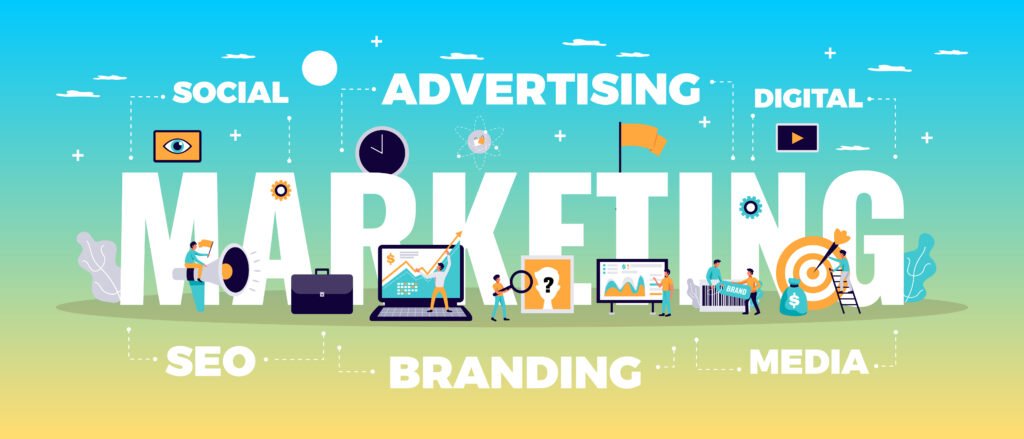
In today’s business landscape, digital marketing stands as an indispensable pillar for success. It leverages digital channels like search engines, social media, emails, and websites to engage potential customers and propel products or services. Various types of digital marketing—SEO, SEM, SMM, email, and content marketing—unite in the common pursuit of reaching and captivating target audiences. Let’s delve into these strategies, their merits, and how to gauge their effectiveness.
Search Engine Optimization (SEO)
SEO orchestrates the optimization of website content to elevate its ranking in search engine results. On-page tweaks refine content elements, while off-page maneuvers like backlink cultivation amplify website credibility. Tools like keyword research and traffic analysis aid in fine-tuning strategies, demanding consistent vigilance and adaptation for efficacy.
Search Engine Marketing (SEM)
SEM involves bidding on keywords to display paid ads atop search engine result pages, an arena where Google Ads and Bing Ads reign supreme. By targeting search queries, SEM efficiently connects with users seeking relevant products or services. This approach provides insights into customer behavior through analytics and offers a cost-effective means of tailored advertising.
Social Media Marketing (SMM)
SMM capitalizes on diverse social media platforms (e.g., Facebook, Instagram, Twitter) to connect with distinct audiences. It bifurcates into paid ads for amplified visibility and organic strategies for engagement sans financial investment. Tools like Hootsuite aid in managing metrics and augmenting audience interaction.
Email Marketing
Email marketing remains a potent, cost-effective tool for personalized communication with the target audience. Crafting engaging content, optimizing email design, and ensuring deliverability are essential for its success. Initiatives span welcome messages, promotional offers, newsletters, and reminders, fostering customer engagement and loyalty.
Content Marketing
Content marketing crafts valuable, pertinent, and consistent content (blogs, videos, social media posts) to captivate and retain a specific audience. Its diverse formats cater to different marketing goals, establishing brand authority, fostering customer trust, and enhancing sales.
In essence, digital marketing stands as the linchpin for modern business success. Employing a blend of these strategies aligned with specific goals is crucial for optimal returns. Measuring success via tools like Google Analytics aids in gauging Key Performance Indicators (KPIs) for informed strategy adjustments.
There’s no universal solution in digital marketing. However, aligning strategies with audience insights and continuously adapting to their behavior ensures sustained success. Tailoring approaches to resonate with your audience can catapult your brand to new heights.
With these strategies harmonized, businesses can navigate the digital realm, amplifying visibility, and forging lasting connections with their audiences.